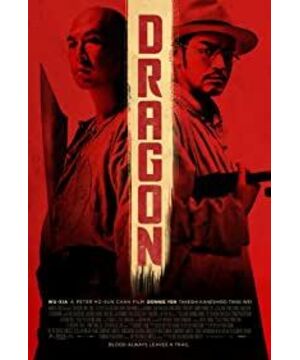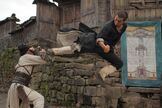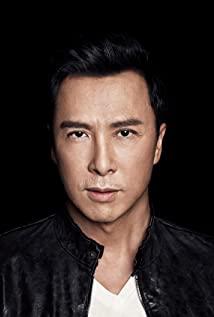The title of "Martial Arts" is very grand, I think it's because Director Chen himself couldn't figure out what film title he should choose, so he simply came to the sea. Just like Zhou Xingchi's "Kung Fu", it has the same effect. The film uses "microscopic martial arts" as a breakthrough point, which is very subtle and novel. It can be subdivided into "microscopic martial arts" - deconstructing the mystery of martial arts through acupuncture points, acupuncture, and meridians. This is a return to the basics of the essence of martial arts. Of course, its scientific nature is open to question. "Microscopic chivalrous man" - chivalrous man can be big or small, the big one is concerned with the common people of Li and the people, and the worries of the world are worrying; "Martial Arts" also created the image of Liu Jinxi, a grass-roots hidden chivalrous warrior. It's just that the biggest problem of the film also surfaced. Can there be any "Xia" in it? Xu Baijiu, played by Takeshi Kaneshiro, appeared as a Conan-style catcher and contributed to the deconstruction of the scene of the crime. This flashback is exquisite and full of highlights. It's just that his own schizophrenia and mental oppression are not "Xia" at all. Looking at Donnie Yen's Liu Jinxi again, he was born in a gang of scoundrels, and hiding and escaping alone is not enough. This is fundamentally different from the hidden man in Sword Rain. Without Xu Baijiu's perseverance to the end, Liu Jinxi's "Xia" would never stand out. In the end, it was because of the "intimacy" of the safety of the family that he chose to break out. Such a passive "Xia" cannot become a real "Xia". The rest are either full of wickedness or ordinary people in the market, and they are all mediocre people, far from "Xia". It can be seen that "wuxia" - there is "wu" but no "xia".
Grafting the background of the story to the remote mountainous area of Yunnan in the late Qing Dynasty and the early Republic of China, restoring the local customs, and occasionally not stingy with the singing voice of the masses, gave Liu Jinxi a lot of shots of daily life, and even delicate to the swim bladder condom. All this not only shows Chen Kexin's feelings of returning to nature, and his personal spiritual aspirations are presented through the pictures, but also weakens the interaction of thinking with the audience. The occurrence and development of the plot are all due to Xu Baijiu's insistence, insisting that the "law" is sacred and inviolable. how you said that? The key is that his persuasiveness for the transformation of his case handling style is too weak. The use of "sympathy point" to explain is the weakness of catching Kuai, this kind of pseudoscience is purely artistic modification and does not need to be studied; but he just relied on a case of a child who was vicious and did not change to take it out of context. It's hard to justify it twice. According to Xu Baijiu's logic, a person's good and evil are determined by the environment they are in, and once they do evil, they will be evil forever, like genes that cannot be shaken. Even if the evil is corrected, it is only a forced restraint through the acupoints on the surface, and one day it is destined to be revealed. From a patient with schizophrenia and obsessive-compulsive disorder, the accuracy of his opinion is laughable. In addition, justice has to be bribed first, which is a sad thing. The officials who took bribes eventually died at the hands of evil forces. One is to illustrate the darkness and irony of the society in the film, and the other is to express the urgent desire for "Xia" in the era of chaos.
Apart from the above-mentioned unconventional and marginalized elements, Chen Kexin will not be so confused as to give up the original nature of commercial films. Donnie Yen's martial arts scene against Hui Hongying is probably the most exciting and cool design of Donnie Yen as a martial artist in recent years. Paired with Dou Wei's psychedelic rock, the world spins and makes people mesmerized. The next final confrontation with Wang Yu was full of strength and mediocre. It may be because he had to pay tribute to "One-Armed Swordsman" and cut his own way. Wang Yu's "education" of Liu Jinxi's dialogue is a bit erratic. He talks to himself, which makes people lose focus. It can be seen that this is again Director Chen's own unique thinking theory. As for the ending of the "Legend of Thunder" that was criticized by everyone, it was actually not as bloody as it seemed on the surface, and it was not because Chen Kexin didn't know how to stop it. Doesn't this just show the helplessness and sadness of life? Similar to Wang Yu, an invincible BOSS-level character, no knight could subdue him. And only relying on God's condemnation and the beautiful long-cherished wish of retribution for evil can give the common people an explanation. In the real world, however, this is superstitious, and the implication is that it is almost impossible to happen. It is not to advise people to sit back and wait, but to have expectations for "Xia" from the beginning to the end, long for "Xia" from the bottom of your heart, and call for the return of "Xia". The "Xia" here can also refer to the "martial arts films" that are going downhill nowadays. Such a genre film that has opened the door for the world to know Chinese films, how much needs the Chinese people's remembrance, care, and exploration, so that it can continue to flourish!
View more about Dragon reviews











